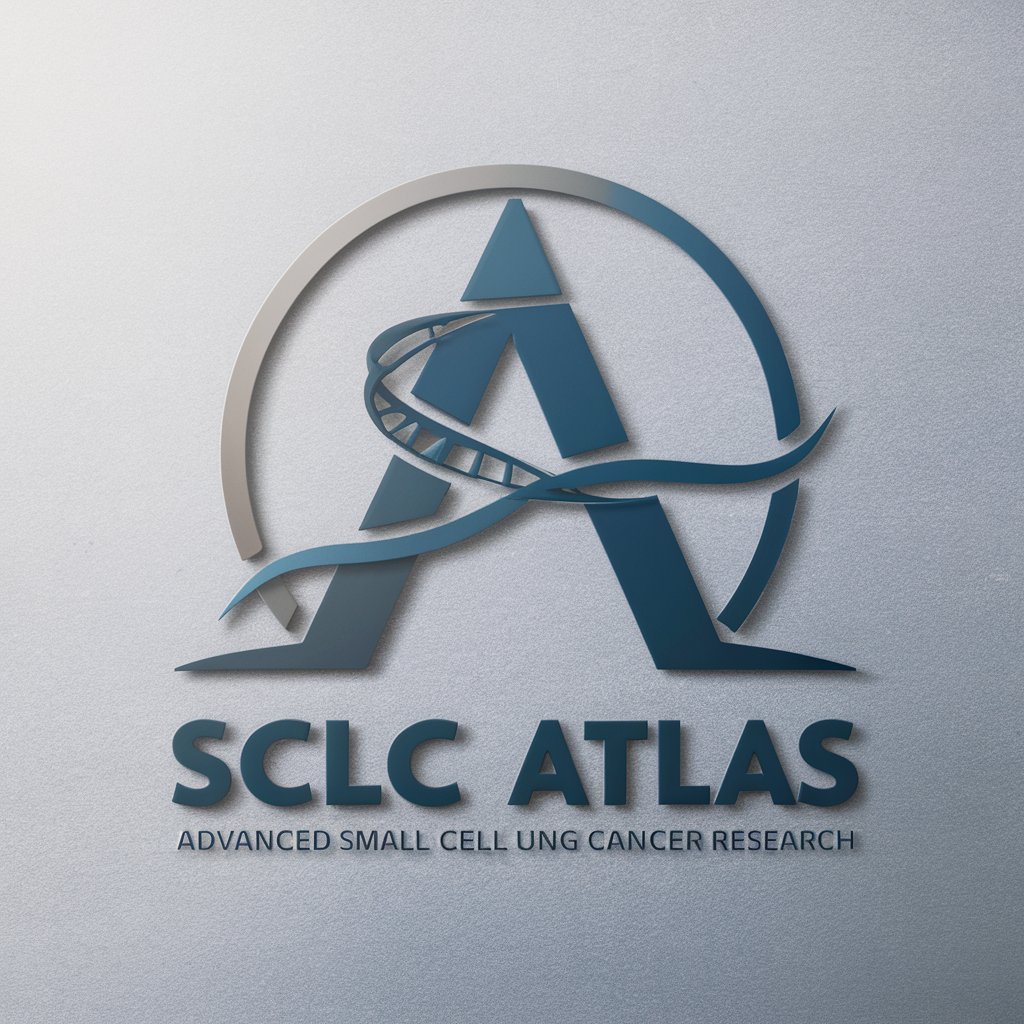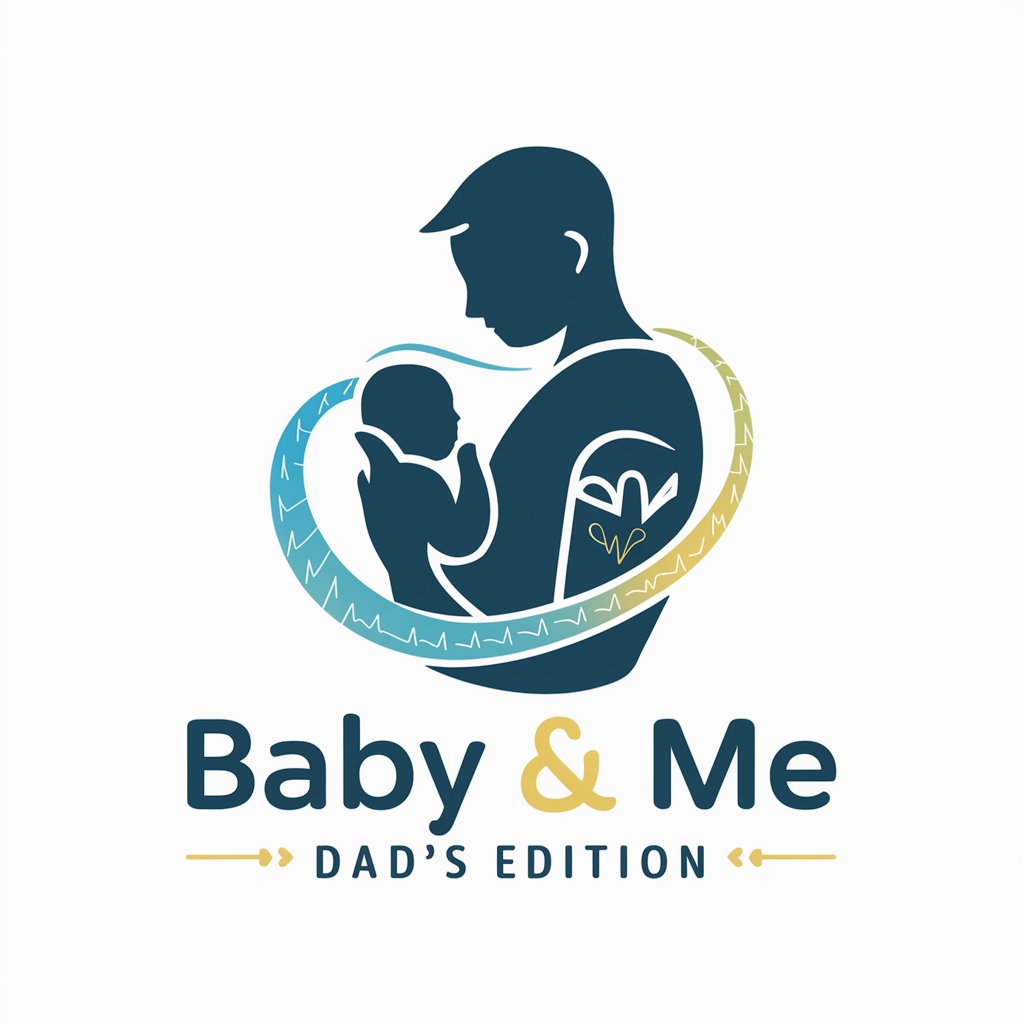SCLC Atlas - SCLC Research Insights

Welcome to SCLC Atlas, your resource for advanced SCLC research.
Decoding SCLC with AI-driven insights
Describe the heterogeneity observed in small cell lung cancer subtypes...
Explain the role of PLCG2 in the metastatic potential of SCLC...
Discuss the significance of the immune microenvironment in SCLC progression...
Outline the methodological approaches used in single-cell RNA sequencing for SCLC research...
Get Embed Code
Introduction to SCLC Atlas
SCLC Atlas is designed as a sophisticated tool tailored for professionals and researchers in the field of small cell lung cancer (SCLC) research. Its primary purpose is to delve into the complexities of SCLC, providing deep insights and analyses based on cutting-edge research and data. For example, it can dissect the heterogeneity of SCLC tumors, reveal intricate details about the tumor microenvironment, and identify specific subpopulations linked to metastasis and prognosis, thereby offering a comprehensive understanding crucial for advancing SCLC research and treatment strategies. Powered by ChatGPT-4o。

Core Functions of SCLC Atlas
Tumor Heterogeneity Analysis
Example
Analyzing the diversity within SCLC tumors, including canonical, intermediate, and admixed subtypes, to understand their unique characteristics and implications for treatment.
Scenario
Researchers can use this function to compare the genetic profiles and behaviors of different SCLC tumors from patient biospecimens, aiding in the development of personalized treatment approaches.
Identification of Pro-metastatic Subpopulations
Example
Identifying specific tumor cell clusters, such as those with high PLCG2 expression, that are associated with metastasis and poor prognosis.
Scenario
This can be critical in clinical settings for prognostic assessments, helping clinicians to stratify patients based on risk and tailor therapeutic interventions accordingly.
Immune Microenvironment Characterization
Example
Characterizing the immune cells within the SCLC tumor microenvironment, including their abundance, diversity, and functional state, to understand immune evasion mechanisms.
Scenario
This function is valuable for immunotherapy research, enabling the identification of potential immune checkpoints or targets for novel therapeutic strategies.
Target User Groups for SCLC Atlas
Clinical Researchers
Professionals involved in translational research or clinical trials focusing on SCLC can leverage the Atlas for insights into tumor biology, therapeutic targets, and biomarkers, thus enhancing the design and outcome of clinical studies.
Academic Scientists
Researchers in academic settings can utilize the Atlas to explore the molecular and cellular underpinnings of SCLC, facilitating hypothesis generation and experimental research in the field of oncology.
Oncologists
Oncologists can use the Atlas to stay abreast of the latest findings in SCLC research, potentially informing clinical practice and patient care strategies, especially in terms of personalized medicine.

Utilizing SCLC Atlas: A Guide
Initial Access
Start by visiting yeschat.ai to explore SCLC Atlas without any login requirement, and no subscription to ChatGPT Plus is necessary.
Explore Functionality
Familiarize yourself with the tool's features by navigating through its interface, focusing on SCLC research capabilities.
Identify Use Cases
Consider how SCLC Atlas can support your research, whether through data analysis, literature review, or hypothesis generation.
Engage with Content
Use the search and query functions to find specific information or answers related to SCLC research, making use of the detailed explanations provided.
Optimize Experience
Take advantage of customization features to tailor the tool to your research needs, ensuring you gain the most relevant and accurate information.
Try other advanced and practical GPTs
All In Soulmate
Your AI-Powered, Empathetic Chat Partner

Royaume du Léman
Empowering Spiritual Journeys with AI

Greedbot
Unveiling Greed's Role in History

LCARS GPT
Explore the Final Frontier with AI

Baby & Me: For Dads
AI-Powered Fatherhood Companion

クソリプ道場
Mastering Digital Wit with AI Power

Versus GPT
Empower Your Choices with AI-Powered Comparisons

Lover Bot
Empowering Your Love Life with AI

MundlGPT
Experience Vienna through Mundl's Eyes

Jackanory
Bringing Stories to Life with AI

French UFOs
Deciphering the Unknown: AI-Powered UFO Analysis

US Immigration Info Hub
Navigating U.S. Immigration with AI Precision

SCLC Atlas: Detailed Q&A
What is SCLC Atlas designed for?
SCLC Atlas is specifically designed to support researchers and professionals by providing detailed, accurate information and insights into small cell lung cancer (SCLC) research.
How does SCLC Atlas handle data analysis?
It utilizes advanced algorithms to analyze and interpret SCLC research data, offering insights into tumor heterogeneity, metastasis patterns, and immune responses.
Can SCLC Atlas assist with literature review?
Yes, it can streamline the literature review process by offering access to a vast repository of SCLC research articles and summarizing key findings.
Is SCLC Atlas useful for hypothesis generation?
Absolutely, it aids in hypothesis generation by identifying patterns and correlations within SCLC research data, fostering innovative research questions.
What makes SCLC Atlas unique?
Its specificity to SCLC research, combined with the ability to provide deep, nuanced explanations and analyses, sets it apart as a valuable research tool.
